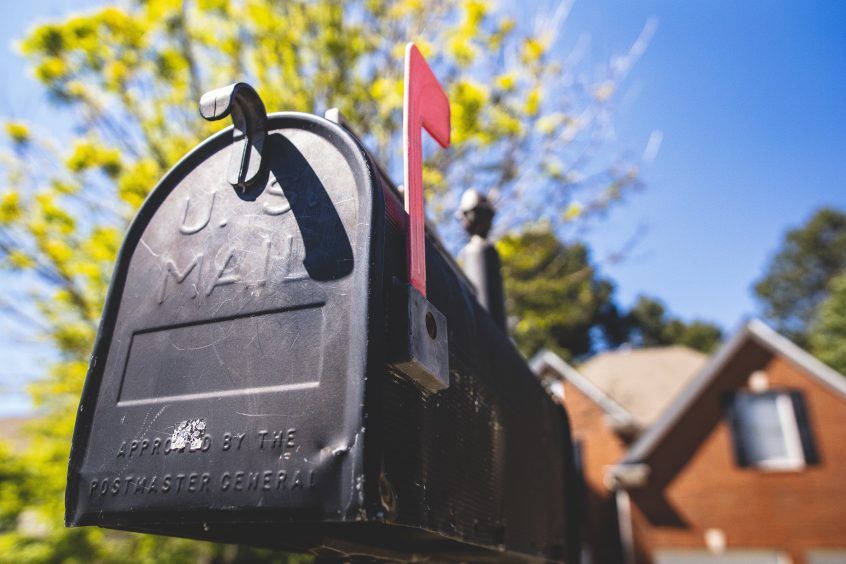
Mailbag: Market Volatility, Life Insurance, Roth 401k, and More
This edition of the Money Wisdom podcast is all about your questions and your concerns. We decided to devote an entire episode to the listener so we plan to answer 10 mailbag questions covering a wide variety of retirement planning topics. If you are someone that enjoys learning as much as possible, this episode should be perfect for you.
Let’s dive into our topics on this show.
Money from IRA or Home Equity Loan?
Our first question comes from a listener that wants to add a screened-in porch to their house but need some help deciding the best route for financing. The two options presented are withdrawing $20,000 from an IRA or taking a home equity loan. There are a few considerations to make but remember that withdrawing from a retirement account means paying taxes. So if you need to spend $20K, you’ll likely have to pull out $25K or more to get that as opposed to a loan which is carrying a low percentage rate right now.
[0:09] – Mailbag question #1: I want to put in a screened-in porch but the only way to pay for would be take an extra $20K out of my IRA or taking out a home equity loan. Which is better?
Market Volatility
The last few weeks have been a roller coaster ride in the market as the Coronavirus and other news have led to a lot of speculation. We’ve been talking to a lot of clients with concerns like this listener. What should you do with your investments? Is moving to cash the best option. We’ll discuss a few things to consider but remember that you’ll need the money beyond the short timeframe you have for retirement. You have 15-20 years that you might be pulling that money out so it has time to correct. Also, this is a great time to revisit your portfolio and make sure you have the right blend of investments to minimize your risk.
[3:41] – Mailbag question #2: I haven’t decided on a specific retirement date but it should be in the next four years. With all of the market volatility, should I just move my retirement savings to cash until it all blows over?
Life Insurance
Life insurance comes up quite a bit for us and this listener is wondering if they should take a policy out on their ex-husband to protect their retirement income that depends on a portion of his pension. Joel shares his personal experience of buying life insurance years ago and why it might be a good decision to look into the policy options.
[5:34] – Mailbag question #3: As part of my divorce settlement, I’ll receive a portion of my husband’s pension for as long as he’s alive. Should I take out a life insurance policy on him in case he dies well before me since I’ll lose a large portion of my retirement income?
Company Stock
Hopefully you’re fortunate enough to work for a company that offers a match for your 401k contributions because that’s becoming less common. But what if that match only comes in the form of company stock? One listener doesn’t like having that much company stock but also doesn’t want to miss out on that free money. Should he still keep putting in as much as possible?
[7:27] – Mailbag question #4: My company matches my 401k contributions but they do it in the form of company stock. I’m not excited about that investment but I don’t want to miss out on any matching funds. Should I still try to put in as much as I can?
Emergency Fund
Everyone should establish an emergency fund and that’s one of the first things many people do when they are building a financial plan. What if you are stretched out from investments and haven’t been able to grow that savings account? Would a home equity loan suffice? That’s a good question and one quick thing to think about is how would you feel if the housing market dropped and you had this outstanding debt? We’ve seen clients in this position and it’s not a favorable one.
[8:33] – Mailbag question #5: I know that I need an emergency fund, but instead of putting money into a savings account, can’t I use a home equity line for that?
Financial Advisor Communication
If you work with us at Johnson and Brunetti, you know that we communicate quite often with our clients and make it a regular part of our relationship. But that’s the case everywhere. This listener wants to know what point you should be concerned if all the communication comes from the client. Regular contact isn’t always necessary, but you shouldn’t be the one always initiating those conversations.
[10:14] – Mailbag question #6: I never hear anything from my financial advisor unless I call him myself and this bothers me. Should I be bothered or is that okay?
Spouses with Different Attitudes Towards Money
Much like other areas of a relationship, finances are frequently discussed but not always agreed upon. We meet couples that don’t agree on how conservative they should be with their money. One person wants to spend more while the other can’t get out of the mindset of saving and working. When you approach retirement, this can be a problem because you want to enjoy this time of your life while feeling certain you won’t run out of money.
This listener falls in that same position and should start with getting an income analysis. Find out exactly where you stand so there’s not debate based on personal preference or opinion. That makes everyone more comfortable.
[10:59] – Mailbag question #7: My husband was born in the 50s but has the mindset of someone born during the Great Depression. I think we’ve saved enough for retirement but he’s convinced we both need to continue working and not spending behind the basics. Is there a way to fix this?
Not a Savvy Investor
This next question comes from someone that’s saved aggressively and invested in their 401k for many years but aren’t sure they’re making the most of their money now and into the future. It’s okay to not know everything about money and retirement planning, but you have to know that what you’re doing is going to work. That’s where an advisor becomes an important partner in your financial planning and Joel will explain why not being savvy won’t always limit you.
[12:50] – Mailbag question #8: I’m probably not what you’d call a savvy investor. I’ve always saved a lot for 35 years and have a big 401k balance. But I have no idea how I should be investing my current dollars or future savings. Have I handicapped myself by having no knowledge of the investing world?
Roth 401k Option
Many companies are now offering a Roth option in 401k accounts. You might not know about it because it always highly publicized, but it can be a great option for many people. If you’re like this listener, you’re probably wondering if the Roth or traditional 401k is the better option. Let’s discuss the differences and why you might choose the Roth route.
[14:50] – Mailbag question #9: They recently announced at work that our 401k would now have a Roth option. Should I put my future savings in that rather than the traditional 401k?
Retirement Income Worries
Almost everyone gets a little anxious over their income and savings in retirement. The thought that you might have to go back to work or pull back on spending. How can you get rid of this feeling? It starts with an income analysis and that goes along with a strong and structured retirement plan.
[16:44] – Mailbag question #10: I’ve looked forward to retirement for many years but now that I’m retired, I can’t shake the feeling that I’ll run out of money. Is there any solution to fighting this feeling?
Information presented in our podcasts is considered current as of the created date. Over time, some information presented may become stale. We recommend you consult with your Financial Professional before making any changes based on information contained here.
Johnson Brunetti is a marketing name for the businesses of JB Capital and JN Financial.
Investment Advisory Services offered through JB Capital, LLC. Insurance Products offered through JN Financial, LLC.


